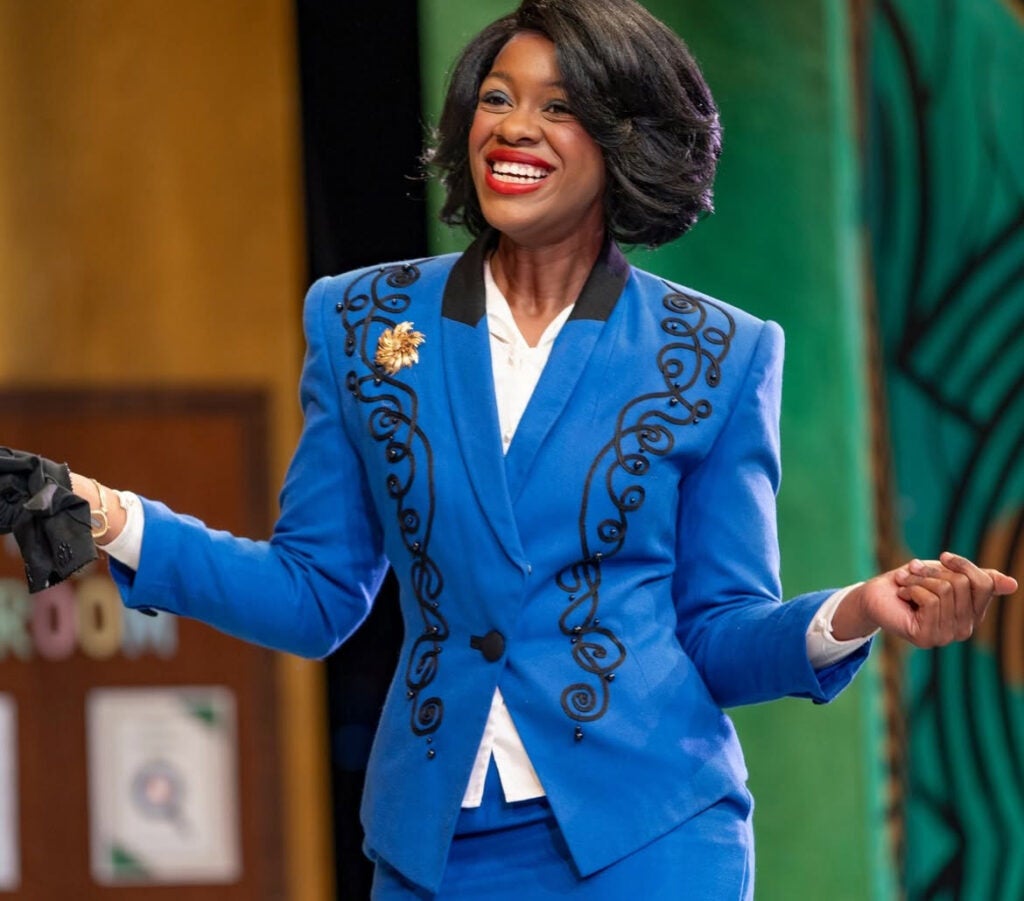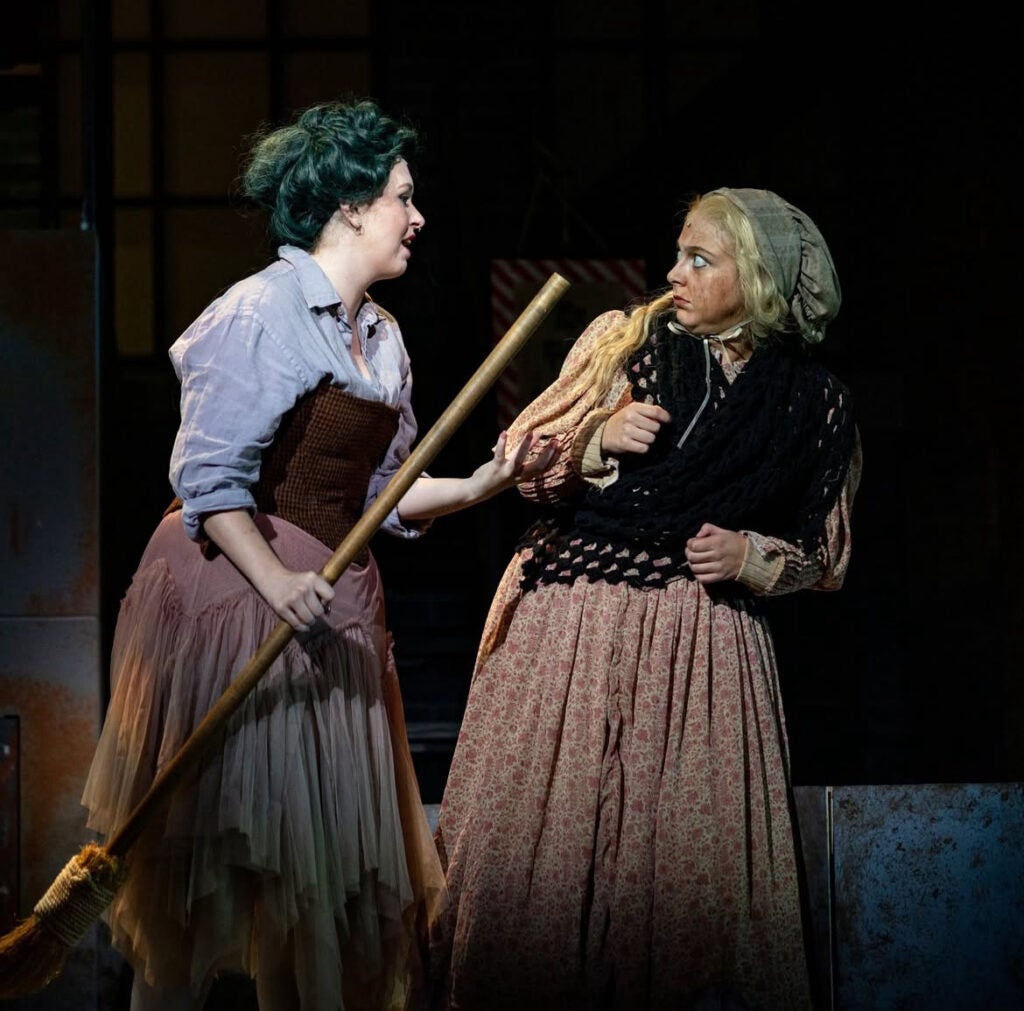
(Photo Used from the School of Theatre and Dance Instagram @ecusotd )
East Carolina University School of Theatre and Dance students have come forward with alleged race-based discrimination practices the school has engaged in.
The students, some of whom have asked for anonymity, allege that an unusual show audition schedule that made it difficult for black female students to be chosen for both fall 2024 productions was followed by the sudden exit of the school’s beloved and only black faculty member.
In the Fall semester, the program put on two productions. One, “School Girls; Or, The African Mean Girls Play” and “Sweeney Todd.”
The first production for the semester was African Mean Girls, and according to PlayBill, the show by Jocelyn Bioh, “takes place inside a boarding school for girls in Ghana in the 1980s, and looks at themes of beauty, adolescence, and colorism.”
“Sweeney Todd” was the musical that took place later that semester. However, the drama began when an uncommon casting practice for the school took place the night before the start of the semester.
Unlikely Casting Practices
Casting and callbacks for auditions for the program typically take place the night before the first day of class in the fall semester. A Theatre and Dance student and cast member of “Sweeney Todd,” who asked for anonymity shared that the School of Theatre and Dance had callbacks for two shows at the same time, which she claimed made it difficult for student actors to audition for both shows, “African Mean Girls” and “Sweeney Todd”.
“The way that it works is, we have general auditions the day before school starts so we have them that Sunday [Aug. 18],” said the junior Theatre and Dance student. “Normally it’s that evening that we get a list of who is called back for each show and when those callbacks are going to be for each character.”
The student said she requested to remain anonymous for fear of consequences with the faculty, explaining, “I work very closely with a lot of the professors in the program, and I am terrified of losing their trust and the consequences it might have.”
“African Mean Girls” is a show that requires a full-female cast of primarily black actresses. With the callbacks being the same night at the same time as “Sweeney Todd” the actors auditioning for both roles, primarily female African American students, were not given the luxury of time in the auditions as other students were. The “African Mean Girls” production occurred in September, and “Sweeney Todd” in November.
The student who asked not to be named said that she was called back for a leading female role in “Sweeney Todd”. She added that in the call-back room, the director was giving notes and tips for the auditions, and his tips were missed by the female students who were in between auditions for “Sweeney Todd” and “African Mean Girls”. This created an obvious disadvantage for them, she said.
“I think it is because “African Mean Girls” started so early in the year, they (faculty) decided they were going to do the “Sweeney” call-backs the same night. So a lot of the women of color had to be running back and forth between those two,” she said.

@ecusotd
Bryan Conger, the co-artistic director of the School of Theatre and Dance said the decision to hold auditions and cast performers for two shows simultaneously was not unusual. “Every other university I have worked at, does that. That is not an unusual practice. It is not an unusual practice in the profession. There are multiple call-back days that I have known actors who have had to drive across New York City to go.”
Conger said that faculty noticed the double call-back night was particularly difficult on stage-management students, but he did not mention the difficulties student actors had who auditioned for both shows that night.
Though Conger said that the faculty were mainly concerned with the timing of when rehearsals started, students have claimed it was an attempt to keep black female students out of the “Sweeney Todd” cast.
“I know that it was a complaint of the cast of “Sweeney Todd” that it wasn’t black enough,” Conger said. “I hear that criticism, I take that in. It certainly was not intentional, and you know sometimes intention doesn’t matter.”
The professor who directed “School Girls; Or, The African Mean Girls Play” was Lisanne Shaffer-Dickerson.
Conger said Shaffer-Dickerson brought “African Mean Girls” to the faculty’s attention, and showed interest in directing it for the Fall 2024 semester.
A disappointing surprise to many Theatre and Dance students was when they realized African Mean Girls was the last show Shaffer-Dickerson would direct before abruptly departing from ECU near the end of the semester. Schaffer-Dickerson was the only black faculty member in the School of Theatre and Dance.
Conger shared that students and others did not know the full story regarding Schaffer-Dickerson’s leave, but he did not go into detail about the information he had about the matter because he said he was asked not to by administrators in the School of Theatre and Dance.
“People think they know the full story, but they never actually know the full story,” Conger said in response to questions about Shaffer-Dickerson’s departure. “They take a piece that they’ve heard from somewhere and it blows up into something bigger.”
Conger said he and the faculty were sad to hear that their colleagues had made plans to take a new position outside of ECU.
Kieran Eustace, a senior Theatre and Dance student and friend of cast members in “African Mean Girls,” said that many of Shaffer-Dickerson’s students claimed she was “asked to find alternative work,” after a speculative racially-targeted event that happened just prior to a showing of “Sweeney Todd”.
Schaffer-Dickerson’s ECU employment contracts were obtained following a records request to the ECU Office of University Counsel.
The first employment contract to Shaffer-Dickerson from ECU dated June 22, 2022 said, “I am pleased to extend an offer to you of a nine-month faculty appointment in the School of Theatre and Dance with the College of Fine Arts and Communication. If you accept this offer, you will join our faculty at the rank of Assistant Professor for a term beginning August 15, 2022, and ending May 15, 2025, excluding summer terms. Your annual (nine-month) salary rate for the initial year of appointment will be $63,000, payable in twenty-four semi-monthly installments.”
In November, shortly after students speculated that Shaffer-Dickerson was asked to leave ECU, a second letter dated Nov. 20, 2024, was sent to her which notified her that her salary and full-time equivalency were being amended and cut.
Instead of being a full-time employee making $5,250 a month, she would be making only $10,000 in total between Jan. 10, 2025 and May 15, 2025, the last semester of her contract, which reduced her pay from the university to $2,000 a month.
In an email thread with School of Theatre and Dance Interim Director, Kate Bukoski, who declined an in-person interview, she was asked if Shaffer-Dickerson was asked to find alternative work.
Bukoski responded, “Employment details, including contracts and other personnel actions, are not accessible to students, faculty, or staff unless they are directly involved in the hiring or administrative process. This means that students would not have access to information regarding a faculty member’s employment status or any separation from the university unless that information was shared directly by the faculty member. Any information circulating beyond that context should be regarded as speculation or hearsay.”
She did not comment on whether Shaffer-Dickerson was asked to find work outside of ECU and why her contract and salary were amended so closely to the end of her allotted contractual time.
Bukowski was specifically asked twice in the email thread if Schaffer-Dickerson was asked to find alternative work by Theatre and Dance administrators. Her response was that Shaffer-Dickerson still remained an employee, contrary to what students had reported.
While the most recent records showed that Schaffer-Dickerson was hired on a three-year contract, which is not necessarily unusual, her pay and terms of that contract were changed so that her salary and hours were drastically cut during the last semester of her contract. After she received news of this sudden change is when students reported that she left ECU.
Students are also angry about what they say was a manipulated photo of a group chat among student performers of both the “African Nean Girls” cast and the “Sweeney Todd” cast that was shared with faculty. According to two THeatre and Dance students, faculty responded with extra monitoring and scrutiny of African American students on the chat, whom they wrongly assumed might disrupt a show. This added to the already-simmering student anger in the school.
Both Conger, the School’s co-artistic director; and Bukowski, the School’s interim director, declined to comment on the group chat incident.
“I can’t speak to you about that,” Conger said, relating to questions regarding the list. “I was told not to talk about it to anybody anywhere.”